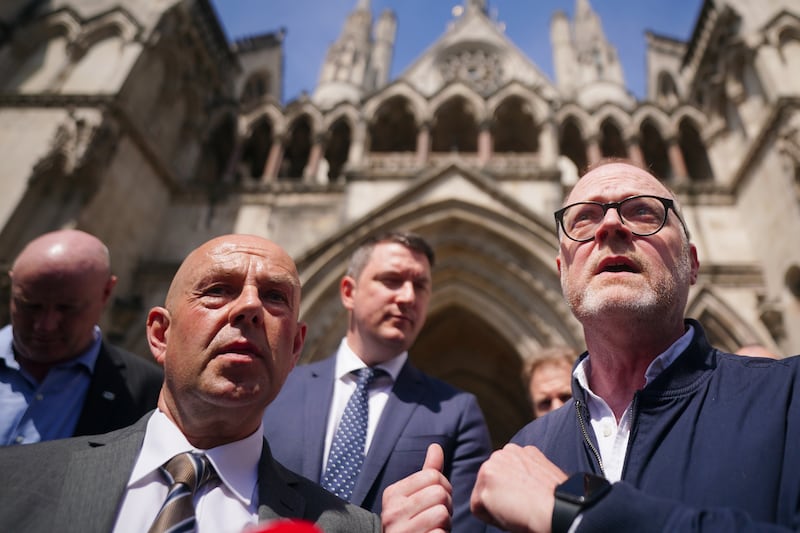Even as it limps towards the next general election and its likely eviction from Number 10, this Conservative government – mired in scandal, having made families poorer and bereft of a positive vision – still shows no signs that it understands the legitimate concerns of all the people in Northern Ireland.
Brexit has, of course, been a particular tragedy. Not content with wrenching the north out of the EU despite a clear majority wishing to remain, the Tories pursued a hard Brexit, shamefully and shamelessly aided by the DUP.
The charlatan Boris Johnson inevitably betrayed the DUP, leading to a chain of events that has left us without a power-sharing executive for almost 18 months and plunging our public services into crisis.
If its attitude to Brexit says much for how the Conservatives' ideological head regards Northern Ireland, then its approach to legacy issues reveals the moral emptiness of its heart.
Undaunted by near-universal opposition, this British government is pressing ahead with its thoroughly ill conceived Troubles legislation, of which the most troubling aspects are an effective amnesty for perpetrators and the ending of victims' hopes of seeing their cases being investigated to a criminal standard and dealt with by the courts.
In a remarkably tin-eared attempt to justify the government's approach, secretary of state Chris Heaton-Harris continues to insist that the Northern Ireland Troubles (Legacy and Reconciliation) Bill will "finally provide answers" to the very many families, victims and survivors who have "been left without justice or information" for decades.
One might observe that in many cases it has been the British government and the security forces who, through foot-dragging and obfuscation, have denied those same families, victims and survivors that information they sought about their loved ones. Mr Heaton-Harris, in a lengthy article for the Belfast Telegraph, failed to address this significant aspect of legacy cases, which rather gives the impression the British government had only a passing involvement in the Troubles.
Read more: Families call on MPs to reject controversial Troubles legacy bill
Read more: Disney begins filming 10-part drama on Jean McConville's abduction and murder
In addition, the idea that even with the promise of 'conditional immunity', paramilitaries involved in the most heinous crimes are somehow lining up to present themselves to the new so-called Independent Commission for Information Recovery and Reconciliation – headed up by former Lord Chief Justice Sir Declan Morgan – may kindly be described as far-fetched.
By pushing through its proposals, the government is not only offering protection to murderers but also extinguishing those flames of hope carried by victims' families, however faintly they may glow.
The legislation betrays them and their lost loved ones. There is still time for the government to find a moral compass and reassert the primacy of truth and justice.







